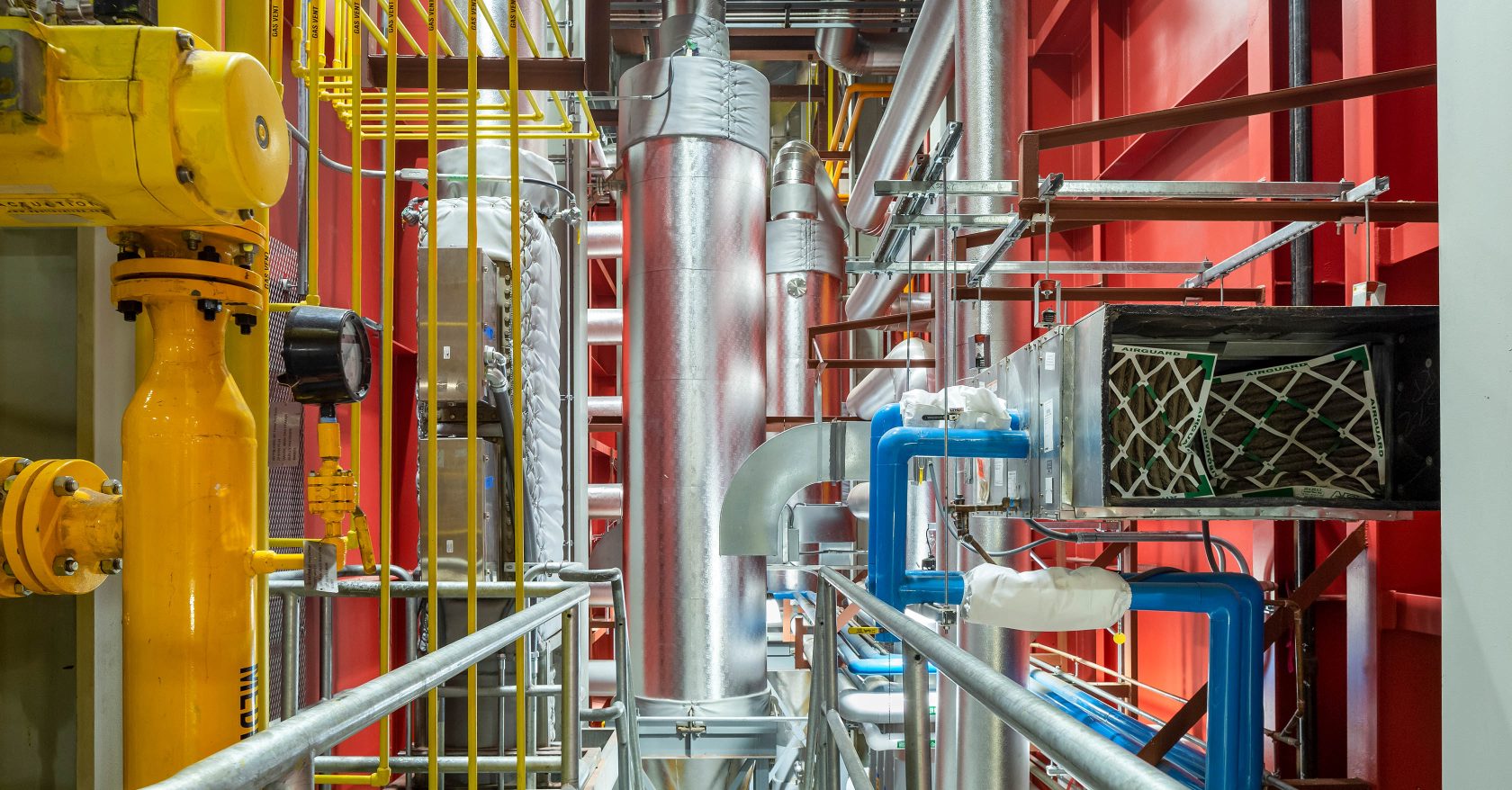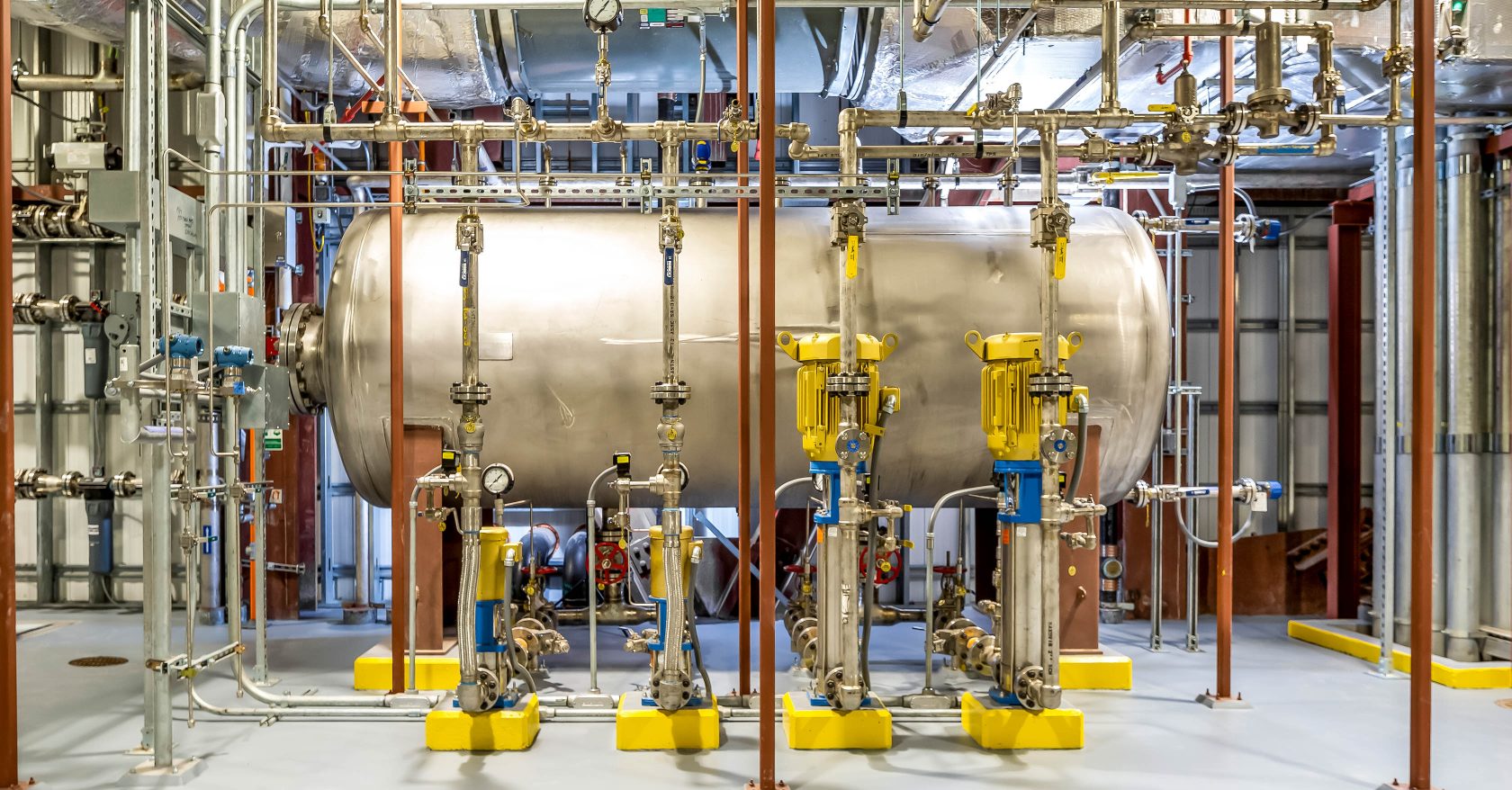Vanderweil conducted a master plan for a new hot water system to serve the MIT’s Main, East, and West campuses. The project included the evaluation of campus steam-to-hot water conversion, existing building systems and loads, central utility plant production, and distribution system. Vanderweil performed an in-depth analysis and comparison of options to upgrade MIT’s system, and provided recommendations for a path forward.
The preferred option utilizes steam from the main steam system and a dedicated economizer section on combustion turbines’ exhaust. This configuration allows the system to efficiently create hot water from otherwise non-recoverable stack waste heat.
The recommended system was designed to provide roughly 170 MM BTU/hr. The master plan also provides design options for a connected loop, increasing redundancy and maximizing available steam line shutdown to reduce maintenance costs.
The selected system design confers significant benefits to MIT. These include the reduction of utility maintenance costs with the elimination of steam manholes and trap stations across the campus. Efficiency of the system is improved through the specialized economizer in its capture of waste heat, and reliability is enhanced through interconnection with the hot water distribution piping loop.
Project Details
Owner
Massachusetts Institute of Technology
Location
Cambridge, MA
Type
Renovation
Size
100 MMBtu/h Steam



